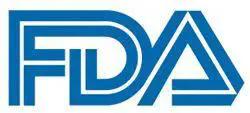News
Article
Alemtuzumab Earns FDA Orphan Drug Designation for Lymphodepletion Before UCART22 in R/R B-ALL
Alemtuzumab was FDA granted orphan drug designation as part of lymphodepletion prior to UCART22 in relapsed/refractory B-cell acute lymphoblastic leukemia.
FDA

The FDA has granted orphan drug designation to alemtuzumab (Lemtrada) for use as a component of the lymphodepletion regimen given prior to UCART22 in the treatment of patients with relapsed/refractory B-cell acute lymphoblastic leukemia (B-ALL).1
UCART22 is being evaluated in patients with CD22-positive relapsed/refractory B-ALL in the phase 1 BALLI-01 trial (NCT04150497). Findings from the study presented during the 2023 EHA Congress demonstrated that patients who received UCART22 with fludarabine, cyclophosphamide, and alemtuzumab for lymphodepletion at dose level 3 of 5.0 x 106 cells/kg (n = 6) achieved an overall response rate (ORR) of 50%. Additionally, 3 instances of complete remission with incomplete count recovery and 1 instance of morphologic leukemia-free state were reported with UCART22 with fludarabine, cyclophosphamide, and alemtuzumab at dose level 2.2
Updated findings presented at the 2023 ASH Annual Meeting showed that patients administered dose level 2 of UCART22 process 2 (P2) at 1.0 x 106 cell/kg (n = 3) experienced an ORR of 67%. Regarding safety, no patients treated at dose level 2 of UCART22 P2 experienced dose-limiting toxicities (DLTs), and no instances of immune effector cell–associated neurotoxicity syndrome (ICANS) or graft-vs-host disease occurred. Cytokine release syndrome (CRS) was reported in 2 of 3 patients; 1 patient had grade 1 CRS that resolved without treatment, and another had grade 2 CRS that resolved after treatment with tocilizumab (Actemra). Grade 5 sepsis occurred in 1 patient at day 40, which was deemed a serious adverse effect (AE) related to UCART22 and lymphodepletion.3
“We are excited that the FDA granted alemtuzumab orphan drug designation status,” Mark Frattini, MD, PhD, chief medical officer at Cellectis Biologics, stated in a news release.1 “The importance of adding alemtuzumab to the lymphodepletion regimen has been demonstrated in Cellectis’ BALLI-01 study, where the addition of this lymphodepletion agent to the fludarabine and cyclophosphamide regimen was associated with sustained lymphodepletion and significantly higher UCART22 cell expansion allowing for greater clinical activity.”
Alemtuzumab is an anti-CD52 antibody designed to render the UCART22 product resistant to alemtuzumab via CD52 knockout. UCART22, which is an allogeneic anti-CD22 CAR T-cell therapy, contains the CD52 gene inactivated by TALEN gene editing technology.1
BALLI-01 is a first-in-human dose-escalation and -expansion study of UCART22 in patients with relapsed/refractory B-ALL. The open-label trial enrolled patients 15 to 70 years of age with CD22-positive disease who previously received at least 1 standard chemotherapy regimen and at least 1 salvage regimen. Patients who received prior cellular, investigational cellular, or gene therapy within 60 days prior to enrollment were excluded.4
The coprimary end points were the incidence of AEs, serious AEs, and DLTs. Secondary end points included investigator-assessed ORR, duration of response, progression-free survival, overall survival, and pharmacokinetics.
Additional findings from BALLI-01 presented at the 2023 EHA Congress showed that patients who received UCART22 regimen (n = 18) experienced no DLTs or instances of ICANS. CRSoccurred at grade 1 (n = 9) and grade 2 (n = 2) severity. Serious AEs were reported in 13 patients including infections (39%) and febrile neutropenia (28%); none of these events were deemed to be related to UCART22.2
Previously, the European Commission granted orphan drug designation to UCART22 as a potential treatment option for patients with ALL.5
References
- FDA grants orphan drug designation to Cellectis’ CLLS52 (alemtuzumab) for ALL treatment. News release. Cellectis Biologics. August 1, 2024. Accessed August 2, 2024. https://www.cellectis.com/en/press/fda-grants-orphan-drug-designation-to-cellectis-clls52-alemtuzumab-for-all-treatment/
- Boissel N, Chevallier P, Curran K, et al. Updated results of the phase I BALLI-01 trial of UCART22, an anti-CD22 allogeneic CAR-T cell product, in patients with relapsed or refractory (R/R) CD22+ B-cell acute lymphoblastic leukemia (B-ALL). Presented at: 2023 EHA Congress; June 8-11, 2023; Frankfurt, Germany. Abstract P1408.
- Jain N, Chevallier P, Liu H, et al. Updated results of the phase I BALLI-01 trial of UCART22 process 2 (P2), an anti-CD22 allogeneic CAR-T cell product manufactured by Cellectis Biologics, in patients with relapsed or refractory (R/R) CD22+ B-cell acute lymphoblastic leukemia (B-ALL). Blood. 2023;142(suppl 1):4847. doi:10.1182/blood-2023-187252
- Phase 1/2 study of UCART22 in patients with relapsed or refractory CD22+ B-cell acute lymphoblastic leukemia (BALLI-01). ClinicalTrials.gov. Updated September 25, 2023. Accessed August 2, 2024. https://clinicaltrials.gov/study/NCT04150497
- Cellectis receives orphan drug designation for UCART22, its allogeneic CAR T product for patients with acute lymphoblastic leukemia. News release. Cellectis Biologics. June 4, 2024. Accessed August 2, 2024. https://www.cellectis.com/en/press/cellectis-receives-orphan-drug-designation-for-ucart22-its-allogeneic-car-t-product-for-patients-with-acute-lymphoblastic-leukemia









